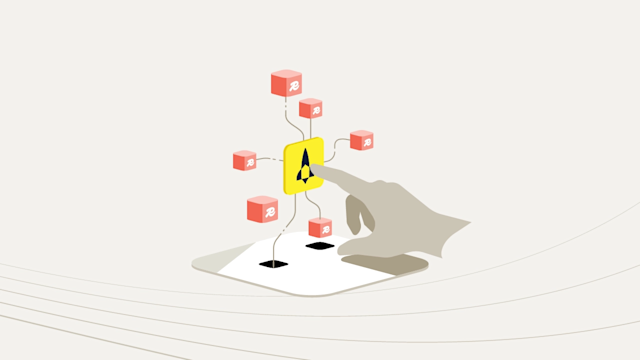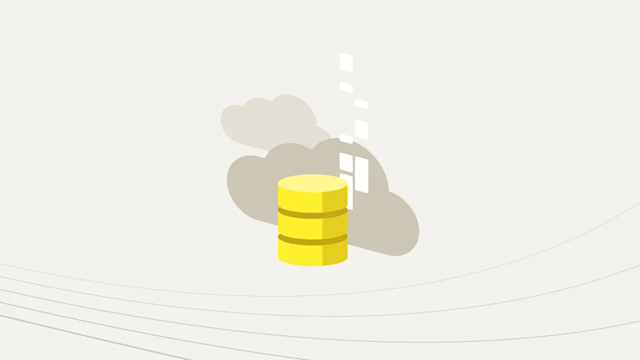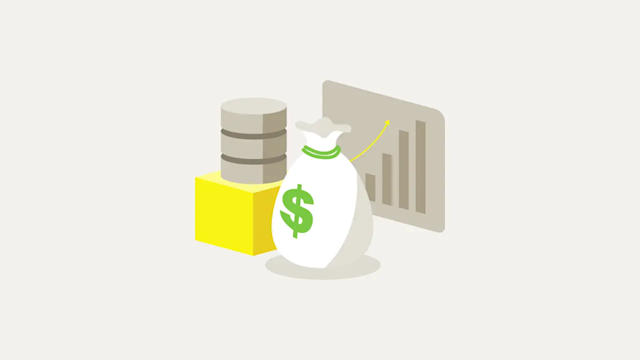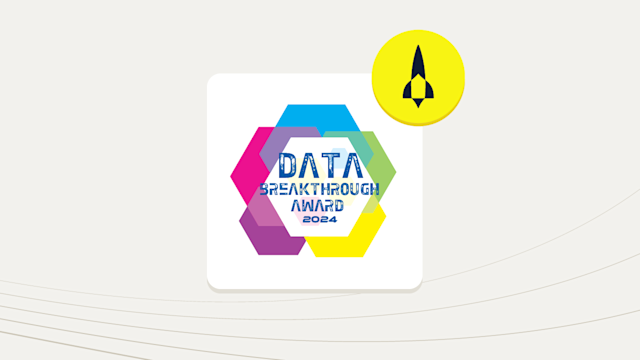NoSQL cloud database use case guide
Learn how NoSQL cloud databases enable data-driven decisions, predictive analytics, and personalized experiences for businesses.
You may have seen our first blog in this three-post series, NoSQL cloud databases: Benefits and features explained.
This guide follows that one up with practical advice on what to do with a NoSQL database once you have it. It also offers real-world examples showcasing how companies leverage NoSQL cloud databases in their day-to-day. It explores the perks and superiority of NoSQL databases compared to traditional relational (SQL) ones and equips you with a comprehensive look into their potential and adaptability in cloud environments. By the end, you'll have a holistic view of the possibilities and advantages that NoSQL databases in the cloud have to offer.
Artificial intelligence/machine learning (AI/ML), data science, and big data
Whether it’s making recommendations for customers, finding devices that need maintenance or replacement, or suggesting new users, artificial intelligence (AI) is everywhere these days. And chances are, under the hood, there is a NoSQL database.
Why it's essential:
Data-driven decisions: These technologies take advantage of massive data sets to produce actionable insights.
Predictive analytics: Businesses become proactive rather than reactive, predicting trends and behaviors.
Benefits:
Because NoSQL databases work with unstructured data, an organization can leverage many kinds of data in its AI, including video, text, and imagery.
Plus, because NoSQL databases are horizontally scalable, adding more cloud resources when needed and removing them when they’re not is easy, saving money and hardware expenses.
AI/ML reveals patterns and predictions that help solve business problems. Having all the data in the world doesn’t help if it doesn’t tell you anything. But to do that, a database has to be able to handle large amounts of different kinds of data, process it, and generate actionable trends—more than likely, in real time. That’s NoSQL’s specialty.
Advertising technology (AdTech)
When you're working in AdTech, speed, precision, and relevance are requirements, and they are all features you’ll find when leveraging the right NoSQL solutions.
Why it's essential:
Targeted campaigns: AdTech ensures ads reach the right people at the right time, delivering personalized experiences that resonate.
Optimized spending: It makes every dollar count, ensuring ad budgets are spent wisely and effectively.
Benefits:
As with other data-intensive use cases, NoSQL databases support horizontal scaling, low latency, and the ability to draw from large quantities of data.
In addition, some NoSQL databases offer support for geospatial data types for location-specific ads.
So, for many companies wanting to out-compete in digital advertising, adopting a robust NoSQL data management strategy was not just an option—it was a proven method of success.
Learn how Aerospike powers AdTech solutions with real-time data in this solution brief.
Customer 360
The term "Customer 360," referring to the 360 degrees of a circle around the customer, sparks thoughts of a holistic view where every customer detail is understood. NoSQL databases offer the complete picture, making personalization more than a buzzword. How do you get there? It starts with analytics.
Analytics
In the sprawling world of data, analytics craft stories out of data. NoSQL databases fuel these stories, offering the speed and flexibility needed to handle diverse data sets and complex queries.
Why it’s essential:
Huge data sets: NoSQL databases tackle the biggest of big data.
Versatile data processing: No matter how unstructured your data is, they sort, sift, and make sense of it.
Benefits:
As with AI, NoSQL’s ability to use horizontally scaled, unstructured big data means getting the best analysis possible with the broadest available data.
NoSQL databases can also handle high volumes of data from sources such as streaming services and Internet of Things (IoT) sensors.
Think about retail giants deciphering purchasing patterns or healthcare institutions predicting patient outcomes. With its ability to handle large amounts of data, a NoSQL cloud database could more than handle these scenarios.
Remember, in the universe of analytics, it's not the size of your data that counts but the responsiveness of your database that truly matters. Learn the key requirements and considerations for streaming data architectures for IoT analytics.
Personalization
The ability to build a connected 360-degree profile of customers based on AI/ML datasets transforms the way millions of users experience offers and advertising.
Why it's essential:
Personalized interactions: Tailored experiences are no longer nice to have; they're expected.
In-the-moment insights: Real-time analytics lets you act when it matters most.
Benefits:
NoSQL databases sift through large amounts of unstructured data about a customer’s entire history.
They spot and act on patterns in real time, making recommendations when customers need them.
Have you ever received a product recommendation so spot-on that it feels like mindreading (but not in a creepy way, of course)? That is the power of leveraging AI/ML datasets with NoSQL databases to create a 360-degree customer profile.
It's about turning every interaction into a sales opportunity. Financial institutions like PayPal or retailers like Wayfair are already harnessing NoSQL technologies to revolutionize customer engagement.
So, when your goal is to know your customers better than they know themselves, NoSQL databases are the tools that turn that goal into reality.
E-commerce
It's not just about keeping stock; it's about creating individual stories that appeal to each unique visitor. When every click can lead to a conversion, nothing less than the most responsive, personalized content will do.
Catalog management
Ever clicked through an online catalog, marveling at the smooth experience? Behind the scenes, NoSQL databases play a pivotal role, ensuring every scroll, click, and view is responsive.
Why it’s essential:
Dynamic content updates: Products come and go; prices change. Catalogs are living entities, constantly evolving in real time.
Personalized user experiences: They don't just list products; they tailor user journeys, boosting engagement—and sales.
Benefits:
NoSQL streamlines updates, keeping your offerings fresh and your customers intrigued.
That way, e-commerce sites cater to individual tastes, making sure every recommendation hits the sweet spot.
Take the colossal Amazon or the fashion retailer Zara; their technology includes NoSQL databases, ensuring catalogs reflect the most current and personalized content. The breadth and depth of a catalog can be daunting, but with a NoSQL database, managing millions of items becomes simpler and faster.
Fraud prevention
Because of NoSQL databases' fast response time, they check many more potential anomalies at the same time or less than other databases, reducing your company’s vulnerability.
Why it's essential:
Pattern recognition: Fraud detection systems sift through dozens of data points to detect anomalies that signal fraud.
Real-time response: But without real-time response, fraud detection systems remain vulnerable.
Benefits:
NoSQL databases nip fraud in the bud by identifying and reacting to suspicious patterns as they happen.
They sustain your trustworthiness by securing transactions and safeguarding user data.
Businesses that embrace these technologies not only shield themselves from potential attacks but also build stronger customer relationships by demonstrating their commitment to security. In the ever-evolving game of cat and mouse between companies and cyber-criminals, the businesses armed with the best data strategies are the most successful.
Read more on “How to supercharge fraud engines to beat it!”
Financial services
In the adrenaline-fueled world of stock trading, every second can make a difference. NoSQL cloud databases provide traders with the edge they need, supporting real-time analytics with a platform that serves as an intraday system of record and high-frequency decision-making.
Why it's essential:
Market agility: Traders must pivot at a moment's notice as they react to fluctuating market conditions.
Data-driven insights: Accurate, fast-access data is critical for informed trading strategies.
Benefits:
NoSQL databases turn the tide in your favor with rapid analysis and automated trade execution.
They quickly detect market trends, giving you a high-definition view of the trading landscape.
While other kinds of databases also power stock trading platforms, NoSQL databases are particularly adept at providing the necessary precision, speed, and scale. In trading, where opportunities are lucrative but fleeting, the right data infrastructure is a necessity. With NoSQL databases, brokers and traders have a tool that works with their instincts, ensuring that when the market moves, they're ready to meet it.
Gaming
For gaming giants like Dream11, NoSQL databases are cornerstones, enabling real-time leaderboard updates and smooth gameplay.
Why it's essential:
Uninterrupted user experience: Impatient gamers don’t want to deal with lag.
Dynamic content delivery: Gamers demand a constant stream of new levels, skins, and challenges.
Richer gaming experience: More data allows for more personalized and immersive game environments.
Benefits:
NoSQL databases level up the gaming experience with fast, uninterrupted access to game state and player data.
Using cloud resources, they manage spikes during game launches or live events, keeping lag at bay.
In the digital environment where gamers demand swift, responsive play, the right NoSQL database gives these users the performance they demand. So, if you're in the gaming industry, consider how a NoSQL database might not just support but enhance your quest for the ultimate gaming experience.
Internet of Things (IoT)
Imagine sensors in smart homes adjusting to your comfort or telematics in vehicles preventing a breakdown. NoSQL databases enable these real-time IoT actions.
Why it's essential:
Data everywhere: IoT networks use a network of sensors to collect vast amounts of data to provide insights.
Data processing at the edge: Analyzing data from IoT and mobile devices at the network edge or on-premises, allows for local processing rather than transmitting it to a central server or the cloud. By positioning computation and storage nearer to the source, edge computing reduces wide-area network traffic, boosts efficiency, and enhances security.
Real-time actions: Instantaneous reactions can mean the difference between efficiency and lost opportunity.
Benefits:
NoSQL databases parse and store the large amounts of data that sensors provide, making IoT more than just a buzzword.
In real time, they trip the wire for prompt actions, ensuring systems are reactive and resilient.
It's the age of smart cities and connected cars, where data is constant. Effectively leveraging IoT data with the right NoSQL databases translates into smarter decisions and a sharper competitive edge. In the data-intensive IoT world, NoSQL databases guide strategy and ensure that important trends aren’t missed.
Mobile applications
When users open an app, they’re on the go and don’t want to wait around. Thanks to NoSQL databases that offer offline synchronization and real-time updates, this is no longer wishful thinking, it's reality.
Why it's essential
Instant gratification: Users expect rapid responsiveness, or they'll simply move on to the next app.
Always-on connectivity: Whether up in the clouds or down in the subway, users demand steady access, which is heavily enabled by edge computing.
Benefits:
NoSQL improves user engagement by ensuring your app performs consistently, even offline.
Many NoSQL databases support offline data synchronization, which means that mobile apps work with the data locally and synchronize it. This is helpful when connectivity is an issue.
Consider the advantage of e-commerce apps with live inventory updates or social media platforms that need to manage millions of messages exchanged instantaneously—it's this technology that holds it all together. Whether you're a bustling startup or a tech giant, if your app isn't up to speed, your user base might just slip through your fingers. But with the right NoSQL cloud database, that's one worry off your checklist.
Sustainability
In an era when sustainability is scrutinized as part of financial performance, choosing the right database isn't just an IT decision—it's a statement about your brand's values.
Why it’s essential:
Resource efficiency: As databases get bigger and bigger, so can costs.
Carbon footprint reduction: Both regulatory agencies and stakeholders are increasingly concerned about reducing the load on the planet’s resources.
Benefits:
Because NoSQL databases scale horizontally, organizations add cloud resources as needed and release them when they’re not needed rather than requiring behemoth single servers to process or store the data.
Depending on the architecture of the selected NoSQL database, it utilizes resources more efficiently than other options available.
Aerospike, for instance, is recognized for its resource-efficient infrastructure that supports lower carbon footprints without sacrificing performance. From smart city projects to eco-friendly supply chains, NoSQL databases help entities manage their impact on the planet efficiently and responsibly.
FAQs
Sure. Just because they can handle unstructured data doesn’t mean they can’t handle structured data. NoSQL is short for “not only SQL,” not “no SQL whatsoever.”
Not at all, but it was SQL’s challenges in dealing with big data that led people to develop NoSQL databases in the first place, so they’re often associated with that.
Well, first of all, whether it’s the “era of NoSQL” is a matter of debate, because traditional relational databases still maintain a large market share. That’s because the jobs they’re good at—running transactions against structured data—are still needed by businesses. It’s the same reason gas-powered cars continue to be sold and operated in the “era” of electric cars: because electric cars don’t fulfill everyone’s needs.
Keep reading

Jun 25, 2024
Redis replaced: Six case studies in superior performance

Jun 14, 2024
NoSQL cloud databases: Benefits and features explained

May 8, 2024
Maximizing database management: How to achieve cost efficiency, high performance, and a low carbon footprint all at once

Apr 24, 2024
Aerospike 7 named in-memory database of the year




